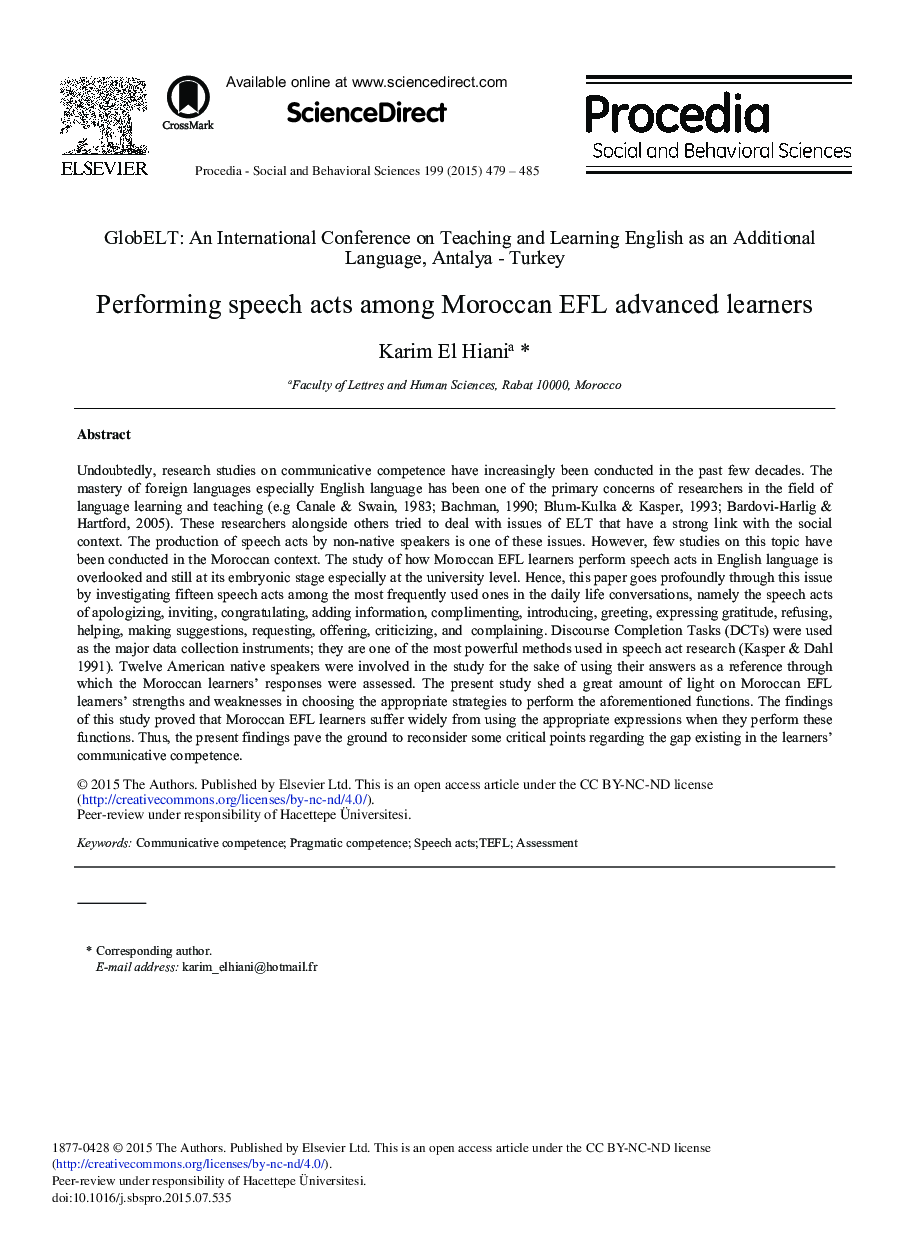| Article ID | Journal | Published Year | Pages | File Type |
|---|---|---|---|---|
| 1109814 | Procedia - Social and Behavioral Sciences | 2015 | 7 Pages |
Undoubtedly, research studies on communicative competence have increasingly been conducted in the past few decades. The mastery of foreign languages especially English language has been one of the primary concerns of researchers in the field of language learning and teaching (e.g Canale & Swain, 1983; Bachman, 1990, ; Blum-Kulka & Kasper, 1993; Bardovi-Harlig & Hartford, 2005). These researchers alongside others tried to deal with issues of ELT that have a strong link with the social context. The production of speech acts by non-native speakers is one of these issues. However, few studies on this topic have been conducted in the Moroccan context. The study of how Moroccan EFL learners perform speech acts in English language is overlooked and still at its embryonic stage especially at the university level. Hence, this paper goes profoundly through this issue by investigating fifteen speech acts among the most frequently used ones in the daily life conversations, namely the speech acts of apologizing, inviting, congratulating, adding information, complimenting, introducing, greeting, expressing gratitude, refusing, helping, making suggestions, requesting, offering, criticizing, and complaining. Discourse Completion Tasks (DCTs) were used as the major data collection instruments; they are one of the most powerful methods used in speech act research (Kasper & Dahl 1991). Twelve American native speakers were involved in the study for the sake of using their answers as a reference through which the Moroccan learners’ responses were assessed. The present study shed a great amount of light on Moroccan EFL learners’ strengths and weaknesses in choosing the appropriate strategies to perform the aforementioned functions. The findings of this study proved that Moroccan EFL learners suffer widely from using the appropriate expressions when they perform these functions. Thus, the present findings pave the ground to reconsider some critical points regarding the gap existing in the learners’ communicative competence.
